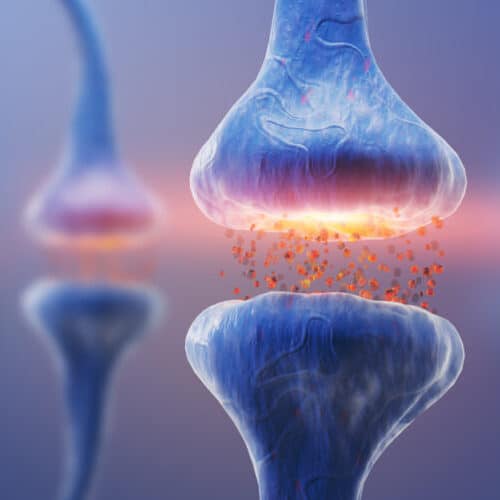Neurotransmitters, the chemical messengers of the nervous system, play a pivotal role in orchestrating communication between nerve cells. These intricate molecules transmit signals across synapses, influencing a wide array of physiological and psychological processes. In this exploration, we delve into the diverse world of neurotransmitters found in the human body, unraveling their functions and impact on our overall well-being.
Acetylcholine: The Messenger of Movement and Memory
Function: Acetylcholine is involved in muscle
contraction, making it crucial for movement. Additionally, it plays a role in
memory and learning processes.
Implications: Imbalances in acetylcholine levels are
associated with conditions like Alzheimer's disease, impacting cognitive
functions.
Dopamine: The Pleasure Pathway
Function: Dopamine is associated with pleasure,
reward, motivation, and the regulation of mood and movement.
Implications: Dysregulation of dopamine is linked to
mood disorders, addiction, and movement disorders such as Parkinson's disease.
Serotonin: The Mood Stabilizer
Function: Serotonin is known for its role in
regulating mood, appetite, and sleep.
Implications: Imbalances in serotonin levels are
associated with mood disorders, including depression, anxiety, and certain
eating disorders.
Gamma-Aminobutyric Acid (GABA): The Calming Influence
Function: GABA is an inhibitory neurotransmitter that
helps regulate anxiety and stress responses.
Implications: Low GABA levels are linked to anxiety
disorders and epilepsy, highlighting its role in maintaining a calm mental
state.
Glutamate: The Excitatory Force
Function: Glutamate is the primary excitatory
neurotransmitter, facilitating communication between nerve cells.
Implications: Excessive glutamate activity is
associated with conditions like epilepsy, while imbalances may contribute to
neurodegenerative disorders.
Norepinephrine: The Arousal Agent
Function: Norepinephrine is involved in the body's
"fight-or-flight" response, increasing alertness and arousal.
Implications: Dysregulation of norepinephrine is
linked to mood disorders, attention disorders, and conditions like
post-traumatic stress disorder (PTSD).
Endorphins: The Natural Painkillers
Function: Endorphins act as natural painkillers and
mood enhancers, promoting feelings of well-being.
Implications: Endorphin release is associated with
activities like exercise and laughter, contributing to stress reduction.
Histamine: The Wakefulness Promoter
Function: Histamine plays a role in regulating
wakefulness, attention, and allergic responses.
Implications: Imbalances in histamine are linked to
sleep disorders, allergies, and conditions like schizophrenia.
Oxytocin: The Bonding Hormone
Function: Oxytocin is involved in social bonding,
trust, and maternal-infant attachment.
Implications: Oxytocin release is associated with
activities like hugging and childbirth, contributing to social connections.
Adenosine: The Sleep Regulator
Function: Adenosine promotes sleep and relaxation by
inhibiting wakefulness-promoting neurotransmitters.
Implications: Caffeine blocks adenosine receptors,
promoting wakefulness and alertness.
Glutamine: The Precursor Molecule
Function: Glutamine serves as a precursor molecule
for the synthesis of glutamate and GABA.
Implications: Ensuring an adequate supply of
glutamine is essential for maintaining a balance between excitatory and
inhibitory neurotransmitters.
Conclusion
In conclusion, neurotransmitters form a complex network that
governs the functioning of the nervous system. Each neurotransmitter plays a
unique role, contributing to our cognitive functions, emotions, and overall
well-being. Understanding the delicate balance and interactions among these
messengers provides valuable insights into the intricate workings of the human
mind and body. As research advances, unlocking the mysteries of
neurotransmission holds the promise of developing targeted interventions for various
neurological and psychiatric conditions.


No comments:
Post a Comment